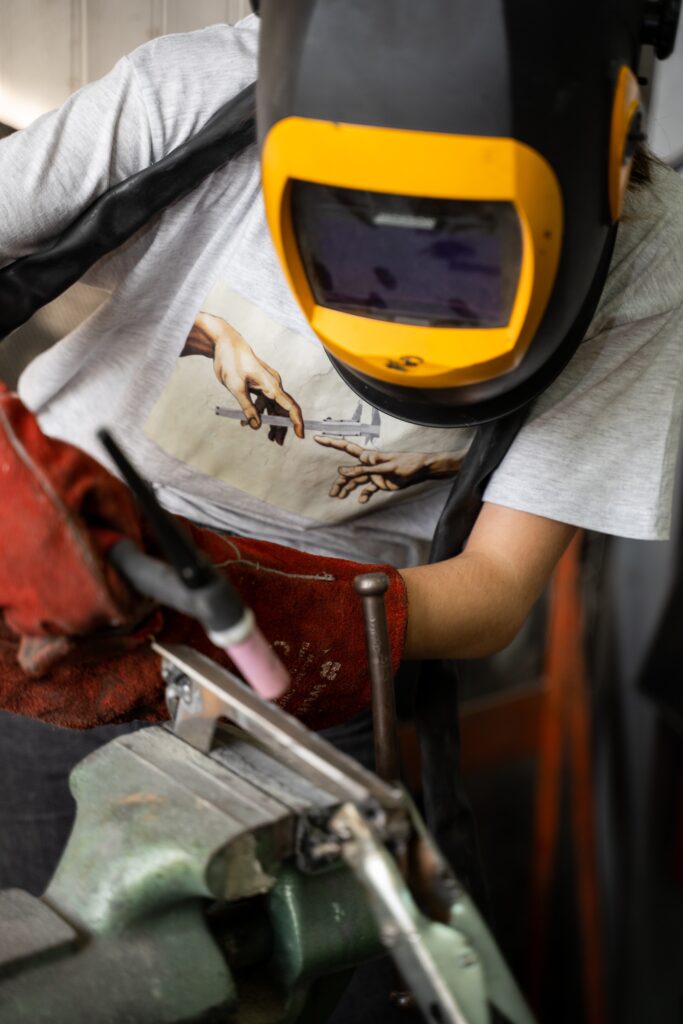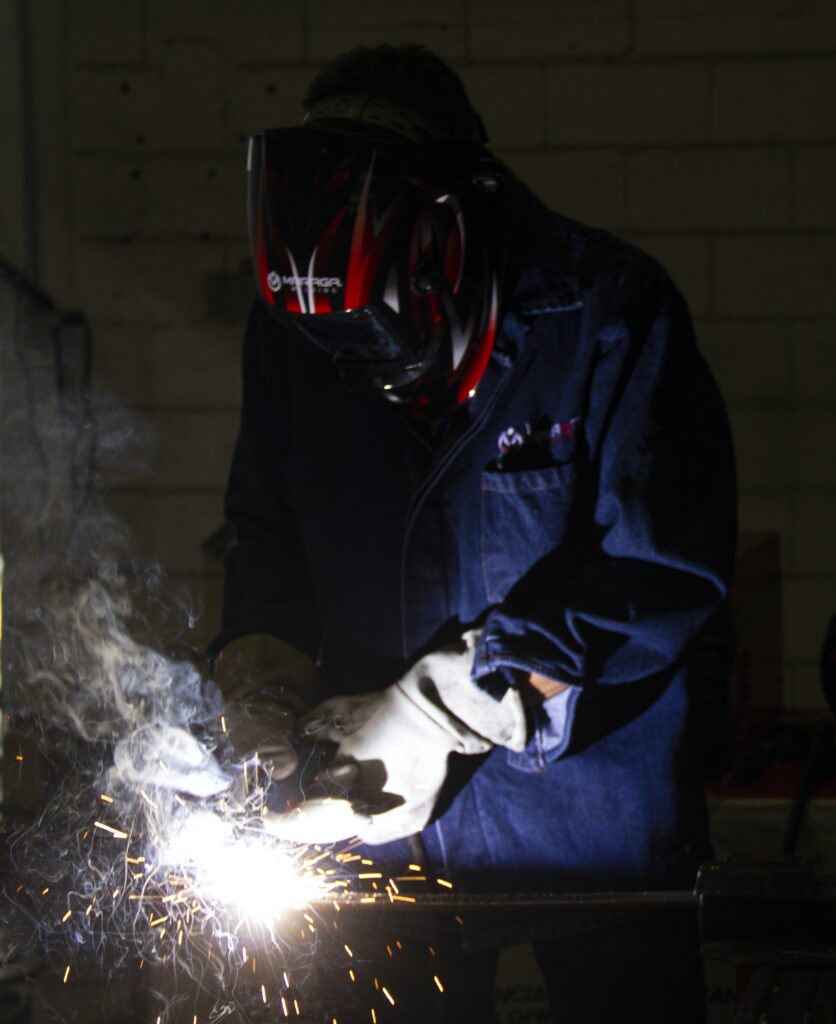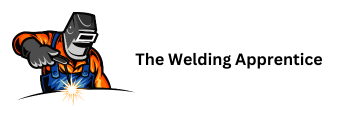Are you a welder who’s dreaming of having control over your daily work schedule, independence, and a chance to expand your work horizon? Well, everything is indeed possible! This article is specifically designed for you. It provides you insights into the untapped potential of becoming a freelance welder. “Can Welders Be Freelance?” breaks down the step by step process, the pros and cons, as well as where to start to shift your career from being employed to becoming your own boss. Get ready to ignite your welding torch and light the path to your freelancing journey!

Understanding Freelance Welding
Freelance welding is an upward trend in the welding industry whereby welders operate as independent contractors. They offer their skills and services on a per-project basis rather than full-time employment. Freelancers provide their expertise to varying clients as they are not tied to a particular company or institution.
Definition of Freelance Welding
Freelance welding entails using your welding skills to work independently. Unlike the traditional employee-employer relationship, freelancers are self-employed, taking on projects from different clients. In essence, freelance welding gives you control over your workload, the type of tasks you want to handle, and ultimately, your income and schedule.
Differences between Freelance Welding and Traditional Welding Jobs
The primary difference between freelance welding and traditional welding jobs is the structure of employment. While traditional welding jobs involve working on a fixed schedule for a specific company, freelance welding is flexible. As a freelance welder, you get to choose who you work for, the type of projects you take, and set your working hours. However, you must also handle elements such as marketing your services and maintaining your equipment, which are typically covered by an employer in a traditional welding job.
Potential Benefits and Challenges of Freelance Welding
Freelance welding brings potential benefits such as flexible working arrangements, the freedom to choose projects, and the possibility of earning higher income. However, these benefits come with their own set of challenges. As a freelancer, you’ll need to navigate finding and retaining clients, managing your taxes independently, and ensuring you have a continuous stream of work to maintain your income.
Skills Required for a Freelance Welder
Freelance welding requires a combination of technical and soft skills.
Technical skills necessary
Your success as a freelancer heavily relies on your technical competence as a welder. Proficiency in diverse welding techniques, understanding blueprints and diagrams, and knowledge of different materials and their compatibility are fundamental.
Soft Skills to Succeed as a Freelancer
In addition to your technical ability, you need effective communication skills, excellent time management, and the ability to negotiate. Marketing yourself is another soft skill that is crucial for finding and retaining clientele. Moreover, good customer service skills will ensure your clients are satisfied, leading to repeat business and referrals.
How to Refine Welding Skills
Advance your welding skills through continuous practice, taking on challenging projects, and keeping up-to-date with the latest welding technology. Joining a welding association can provide opportunities for networking and professional development.

Obtaining Required Certifications
Certifications validate your skills and can significantly boost your freelance business.
Importance of Welding Certification
Certification not only enhances your credibility but also makes you more attractive to potential clients. It acts as proof of your skills and validates your competency in welding.
Types of Certifications for Welders
Several bodies offer welding certifications, with AWS (American Welding Society) being the most recognized. They offer several types of certifications, including Certified Welder (CW), Certified Welding Inspector (CWI), and Certified Robotic Arc Welding (CRAW).
How to Obtain Welding Certification
Most welding certifications involve completing coursework and passing a practical welding test. AWS, for instance, requires you to pass a hands-on welding proficiency exam to get certified.
Getting Personal Protective Equipment and Tools
Safety and adequacy of equipment are essential in freelance welding.
Why Personal Protective Equipment and Tools are Crucial
Personal protective equipment (PPE) is vital in protecting yourself from hazards associated with welding, such as flying metal chips, toxic fumes, and intense light. Essential tools, on the other hand, are necessary to perform your tasks with precision and efficiency.
Essential Equipment for a Freelance Welder
Your gear should include a welding helmet, safety glasses, respiratory protection, protective clothing, and welding gloves. Key tools to have are a variety of welding machines, tungsten electrodes, welding wire, grinders, clamps, and cleaning materials.
Best Places to Purchase Welding Equipment
Specialized welding shops, hardware stores, online retailers, and industrial supply companies provide a variety of welding equipment. It’s advisable to compare prices and quality, and consider user reviews before purchasing.

Finding Clients as a Freelance Welder
The number of clients you acquire is determinant of your financial success as a freelancer.
Different Methods to Approach Potential Clients
Depending on your target market, you might find clients through online platforms, trade fairs, networking events, or word-of-mouth referrals. Offering introductory discounts to new clients or rewards for referrals can also attract clients.
Marketing Strategies for Freelance Welders
Marketing is a crucial aspect of freelancing. Utilize online platforms such as social media and websites to showcase your work. Print media is also effective as it gives potential clients something tangible they can refer to.
Networking and Partnerships
Networking provides an opportunity to connect with potential customers and learn about upcoming opportunities. Partnerships can also increase your outreach as well as share resources and skills.
Setting Up Financial Systems and Rates
Financial clarity is key in freelance welding.
How to Create a Financial Plan
Plan your business expenses, payment terms, and savings. Ensure to separate your personal and business finances to maintain clear records.
Determining Competitive Rates
Research the local market and consider your level of expertise when setting your rates. Do not undervalue your services to attract clients. It’s best to provide quality work and charge accordingly.
Managing Invoices and Payments
Successful freelancing requires prompt and efficient handling of invoices and payments. Investing in invoicing software can ease this process and ensure timeliness. Always confirm payment terms with your clients before handling a project.
Legal Aspects for Freelance Welders
Running a freelance welding business requires legal compliance and good practice.
Understanding Legal Requirements for Freelance Businesses
Freelancers need to comply with all local, state, and federal laws. Regulations include filing accurate tax returns, obtaining a business license if required, and adhering to safety standards.
Insurance for Freelance Welders
It is essential to have liability insurance to cover any damages while on a client’s property. Equipment insurance may also be necessary to cover repair or replacement costs.
Dealing with Contracts and Agreements
A well-crafted contract or agreement sets the terms for business dealings, helps prevent miscommunication, and can provide legal recourse if a dispute arises. Ensure to double-check all agreements before signing.
Maintaining Safety Standards
Safety should be your primary concern in the welding workplace.
Safety Measures Necessary for Welding
Freelance welders must take adequate safety precautions to protect themselves from the many potential hazards of welding. These include wearing appropriate personal protective equipment (PPE), ensuring adequate ventilation, and following proper operational procedures.
Regular Safety Training
Continuous safety training ensures that you stay updated on industry safety standards and procedures, helping to reduce risks and promote a safe working environment.
Dealing with Potential Hazards and Accidents
Be prepared to handle accidents by having a first aid kit available and knowing emergency procedures. Regular equipment checks can prevent unforeseen accidents, and good housekeeping reduces the risk of trips and fires.
Continuous Learning and Skill Development
To improve your success as a freelance welder, you must be committed to continuous personal and professional development.
Importance of Ongoing Education in Welding
Keeping up with advancements in welding technologies and trends can help you to stay competitive in the industry. This can be achieved through regular training and reading industry publications.
Training Opportunities for Freelance Welders
Training can be found in technical schools, community colleges, and trade unions. Online courses, seminars, and workshops are also beneficial for honing your skills.
Staying Up-to-Date with the Latest Welding Techniques
Always strive to stay aware and proficient in the latest welding techniques and technologies. Join professional forums and networks, follow industry trends, and make continuous learning a career-long endeavor.
Concluding Thoughts on Freelance Welding
Freelance welding presents a unique opportunity to take control over your work, income, and time. The benefits of freelancing, including flexibility, potential for growth, and ability to choose your clients and projects, are tempting.
Why Considering Freelance Welding Can Be Beneficial
Freelance welding can provide a sense of empowerment and independence that traditional roles may not offer. Not only do you get to dictate your working terms, but you also diversify your experience by working with a wide range of clients.
Challenges in Freelance Welding
Freelance welding comes with its share of challenges. These could range from financial uncertainties, competition, finding clients to sometimes even isolation. But with proper planning, resilience, and a mindset of constant learning, these hurdles can be overcome.
Future Prospects in Freelance Welding
With rising demand in sectors such as construction, automotive, and manufacturing, the prospects for freelance welding look promising. By continuous learning, networking, and marketing, you can establish a thriving freelance welding career.
